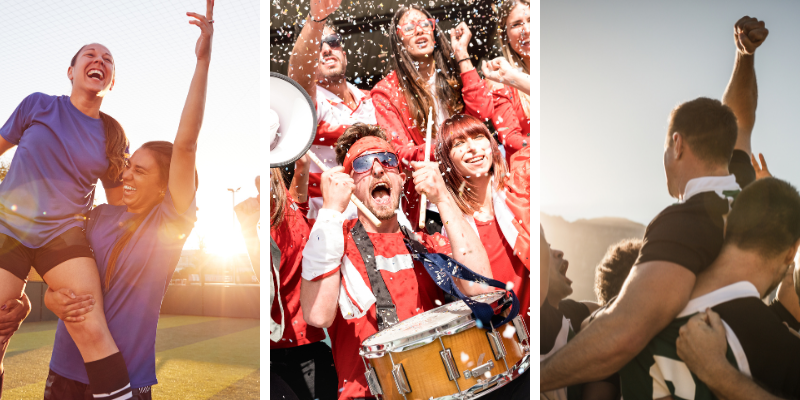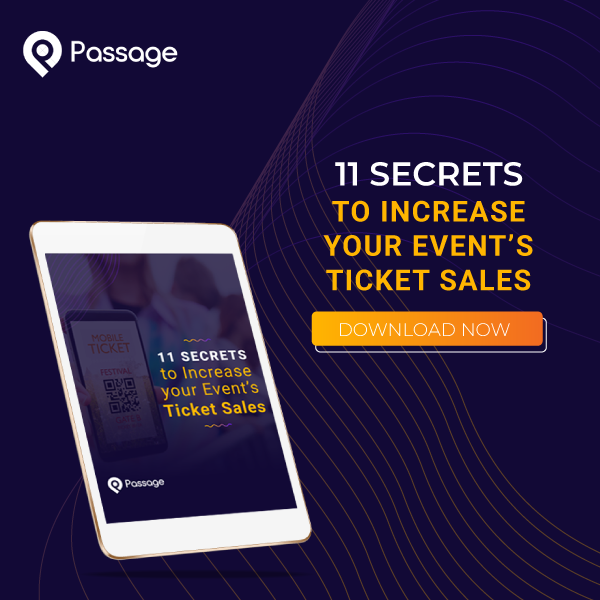Event organizers always aim to create an engaging and memorable experience for their attendees. However, without understanding your audience, it is challenging to create a successful event that meets their needs and expectations.
Fortunately, in the digital age, data analytics has made it easier than ever to get insights into your audience's preferences and behavior. By leveraging analytics and data, you can improve conversion rates and create a more impactful experience for your guests.
Understanding Your Audience Through Data
The first step to increasing conversion rates is to understand your audience. This can be achieved by analyzing data from previous events which offers a better understanding of your audience's behavior, preferences, and interests. This data can include website analytics, social media engagement, email open and click-through rates, attendee surveys, and feedback from sponsors and partners.
Understanding Audience Segmentation
One of the first steps to understanding your audience using analytics is audience segmentation. This is the process of dividing your audience into specific groups based on demographics, interests, and behavior. Segmentation can help you identify the needs and preferences of different audience segments and tailor your event to meet those needs.
For example, if you’re hosting a music festival, you can segment your audience into different age groups, music genres, and locations. With this segmentation, you can create targeted marketing campaigns, design the event experience, and provide the right services that align with your audience’s interests and preferences.
Using Social Media Analytics
Social media is an essential tool for any event organizer to engage with their audience and drive attendance. It’s also a rich source of data that can help you better understand your audience and increase conversions using analytics. Social media analytics tools can provide insights into your audience's demographics, interests, and behavior. These metrics can reveal your audience’s most active times of the day, which of your posts they engaged with, your audience’s preferred channels, and where they spend the majority of their time online.
More than that, you can use social media analytics to track how your audience feels about your event. By monitoring social media channels, you can get feedback from attendees, influencers, and followers. This feedback can then be used to improve the event experience and create more engaging content.
Using Ticketing Analytics
By analyzing the data provided by your mobile box office, you can gain valuable insights into your customers' behavior, preferences, and patterns of engagement. This information can then be used to optimize your marketing efforts, personalize your outreach, and fine-tune your event planning to better align with your target audience's needs and expectations. By leveraging ticketing analytics, you can make more informed decisions about pricing, promotion, and customer experience, ultimately driving more conversions and enhancing the overall success of your events.
This can be the most valuable analytics you may sift through since it will offer some of the most concrete data regarding conversion rates. You can monitor how many event page visitors you have and see at what point carts are abandoned. Then this data can be used to make adjustments to your checkout process to encourage more completed sales.
Does your online ticket sales platform offer a robust set of data and analytics? Passage does. We understand how valuable it is to monitor real-time sales, no-shows, fraud reporting, A/B testing, real-time check-ins, and so much more. With the right data and tools, you can create successful events that engage your audiences and drive more ticket sales. Let us help you take your event planning and ticket sales to the next level with our powerful reporting system.
Using Event App Analytics
Event apps are becoming increasingly popular since they provide guests with a personalized experience and simplify event registration. Not to mention the wealth of information and ease of management they offer. Event apps can also offer insights into the audience's behavior and preferences since they can track the number of app downloads, usage frequency, and features used by attendees.
The data collected by your event app can offer a better understanding of your audience. This information can then be used to improve your app's functionality, tailor your event and create more targeted marketing campaigns.
Measuring Conversion Rates
Measuring conversion rates is essential for understanding your audience and increasing conversions with analytics. It helps you understand the effectiveness of your marketing campaigns and identify areas for improvement. Conversion rates can be measured by tracking the number of guests who purchase tickets or register for your event compared to the total number of people who show interest in your event.
Analyzing conversion rates makes it easier to identify your most effective marketing channels for driving attendance and closing the deal. For example, if most attendees came from social media, you know that’s a popular and effective channel. Then you can dedicate resources to social media marketing efforts to increase attendance. By analyzing conversion rates, you can identify the most popular ticket types, pricing strategies, and registration methods that resonate with your audience.
Using Surveys and Feedback Forms
Surveys and feedback forms are traditional methods of collecting data, but they are still effective at understanding your audience. Surveys can be used to gather information about your audience's preferences, expectations, and feedback on their event experience. By analyzing survey data, you can identify areas for improvement and make data-driven decisions.
For more information and examples of how to use surveys and feedback forms you can visit our recent blog post: Data Points You Should Collect After Your Event Ends.
Using Data to Tailor Your Messaging
Once you have a better understanding of your audience, you can use this data to tailor your messaging. When you understand what resonates with your audience, you can create targeted messaging that speaks directly to them. For example, if your data shows that your audience is interested in sustainability, you can create messaging that highlights your event's eco-friendly initiatives.
Optimizing Your Registration Process With Data
The registration process is a critical component of any event. By using data, you can optimize the registration process to increase conversion rates. One way to do this is to track the number of people who abandon the registration process and identify where they dropped off. This data can help you identify areas of friction in the registration process and make necessary improvements. Additionally, data on the types of tickets purchased can provide insights into pricing and ticket options that resonate with your audience.
Measuring and Tracking Your Success With Data
Measuring and tracking your success is essential to making data-driven decisions. By tracking key performance indicators (KPIs) such as attendance, revenue, and engagement, you can determine the success of your event and identify areas for improvement. These KPIs can also help you measure the effectiveness of any changes you make to your event based on the data.
Wrapping Up
In conclusion, understanding your audience and using data to increase conversion rates is essential for event organizers. By analyzing data, tailoring your messaging, optimizing your registration process, and measuring your success, you can make data-driven decisions that will help you create more successful events. Remember, data is only as good as the insights you gain from it, so take the time to analyze and understand the data to make the most of it.
Wondering what data Passage can offer and how you can use that to improve your event? Schedule a virtual demo with our world-class client success team to learn more about how Passage can offer you the analytics you need.










